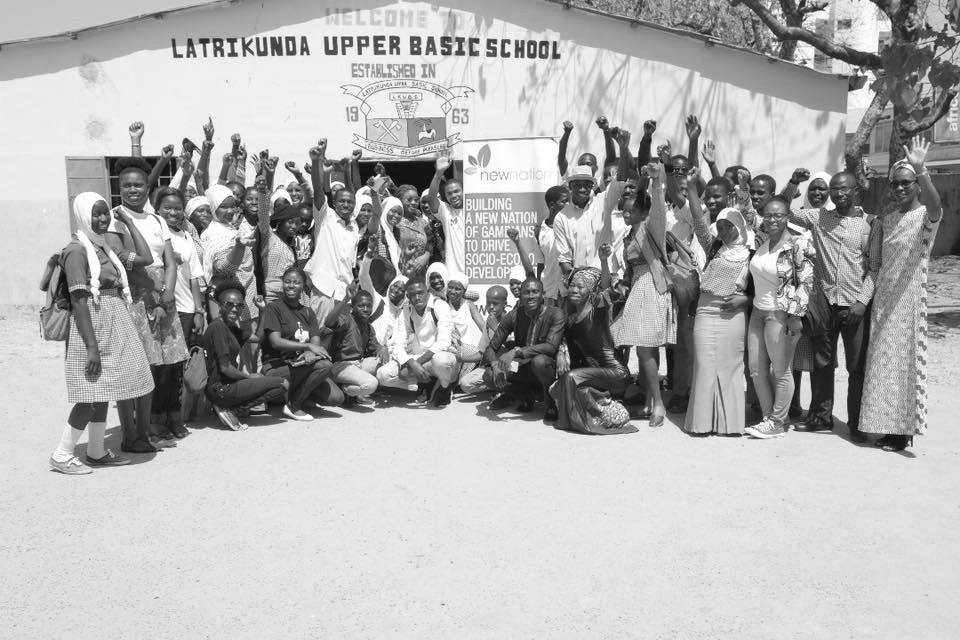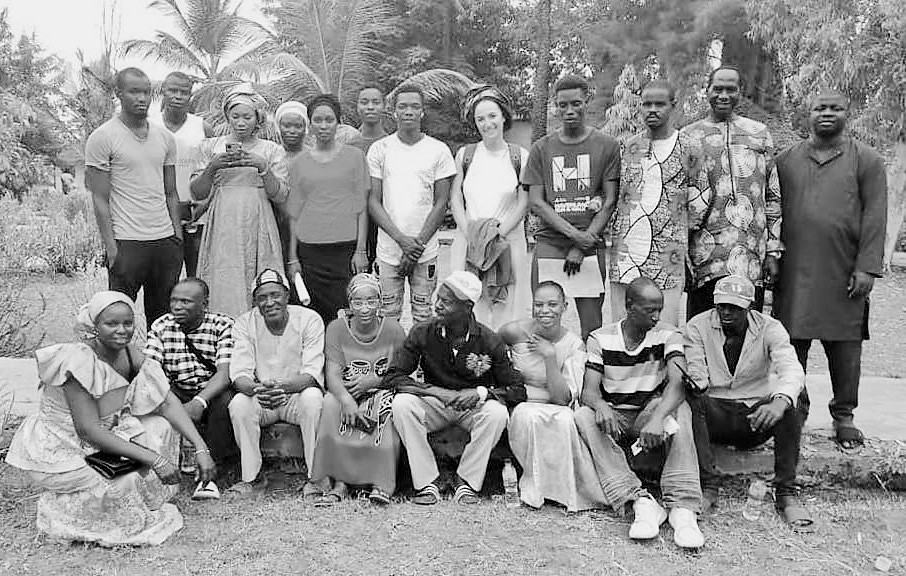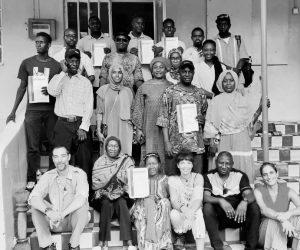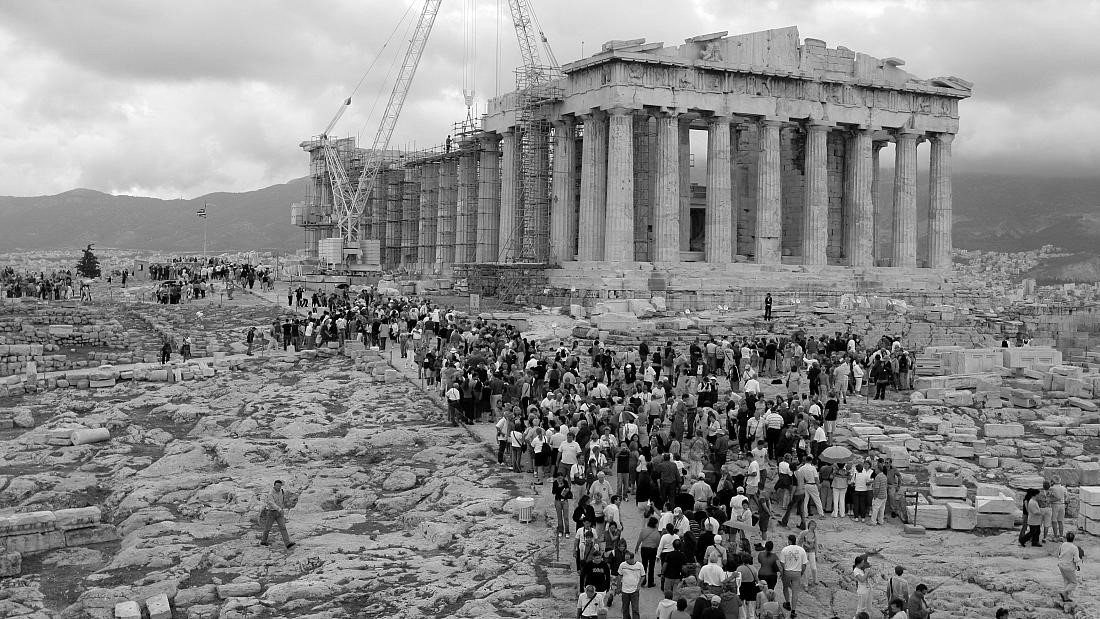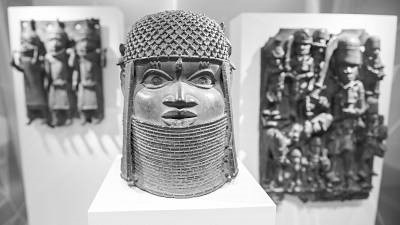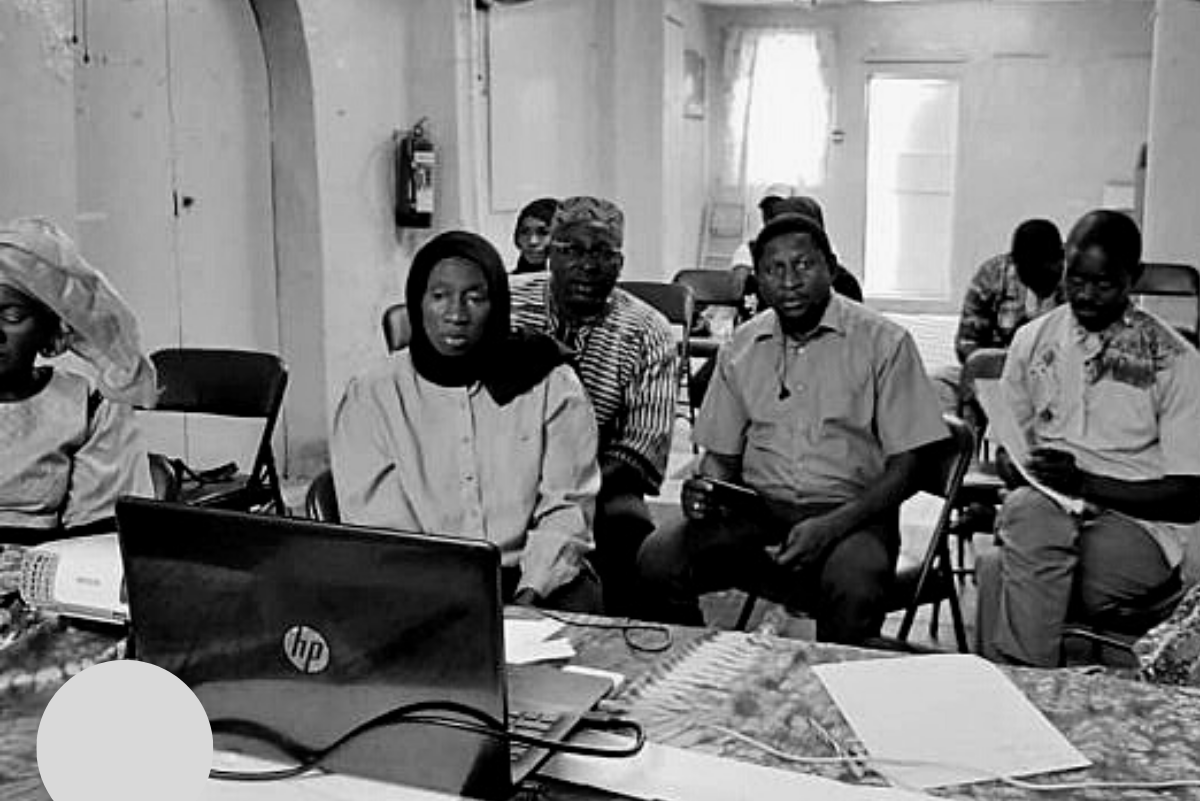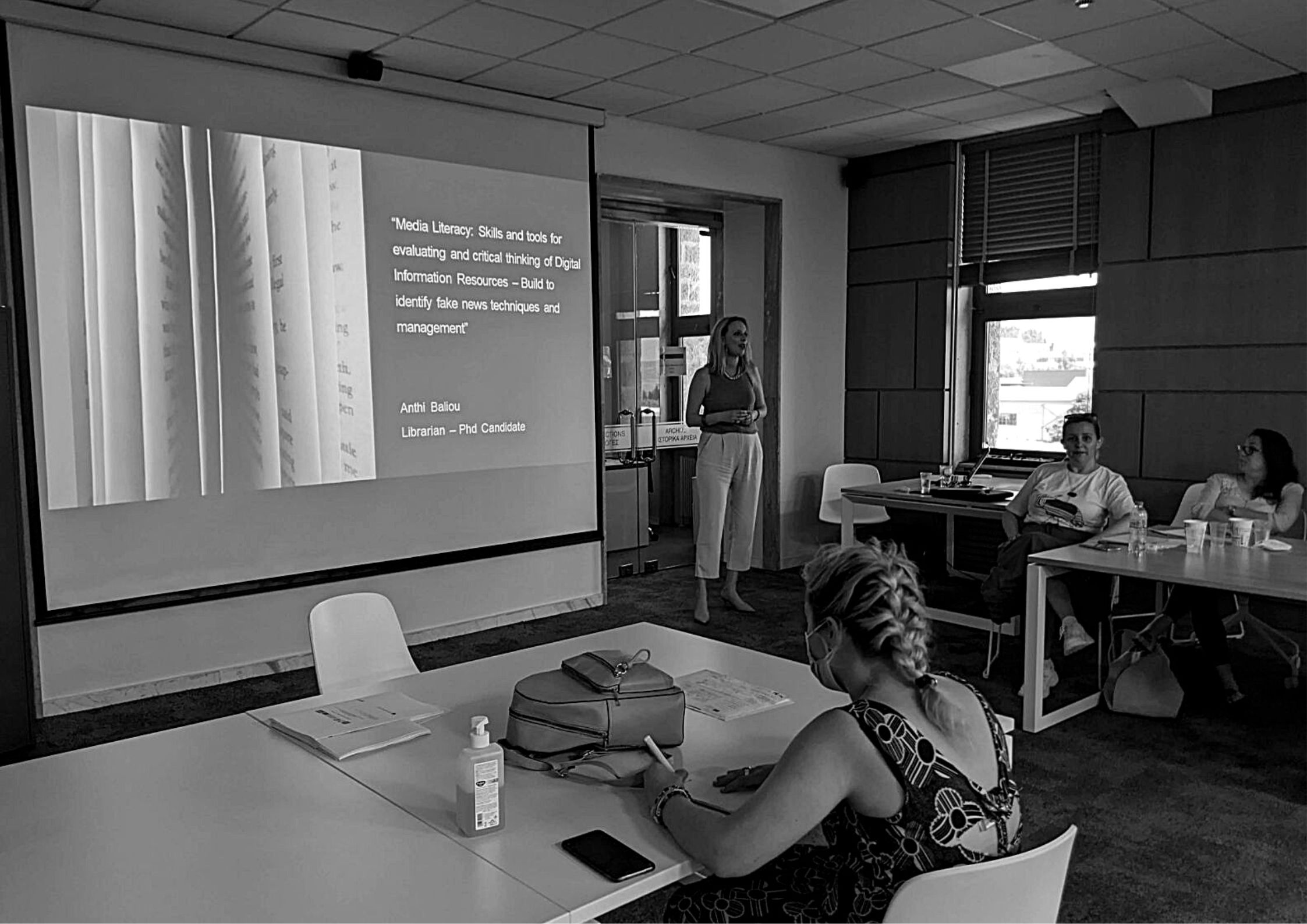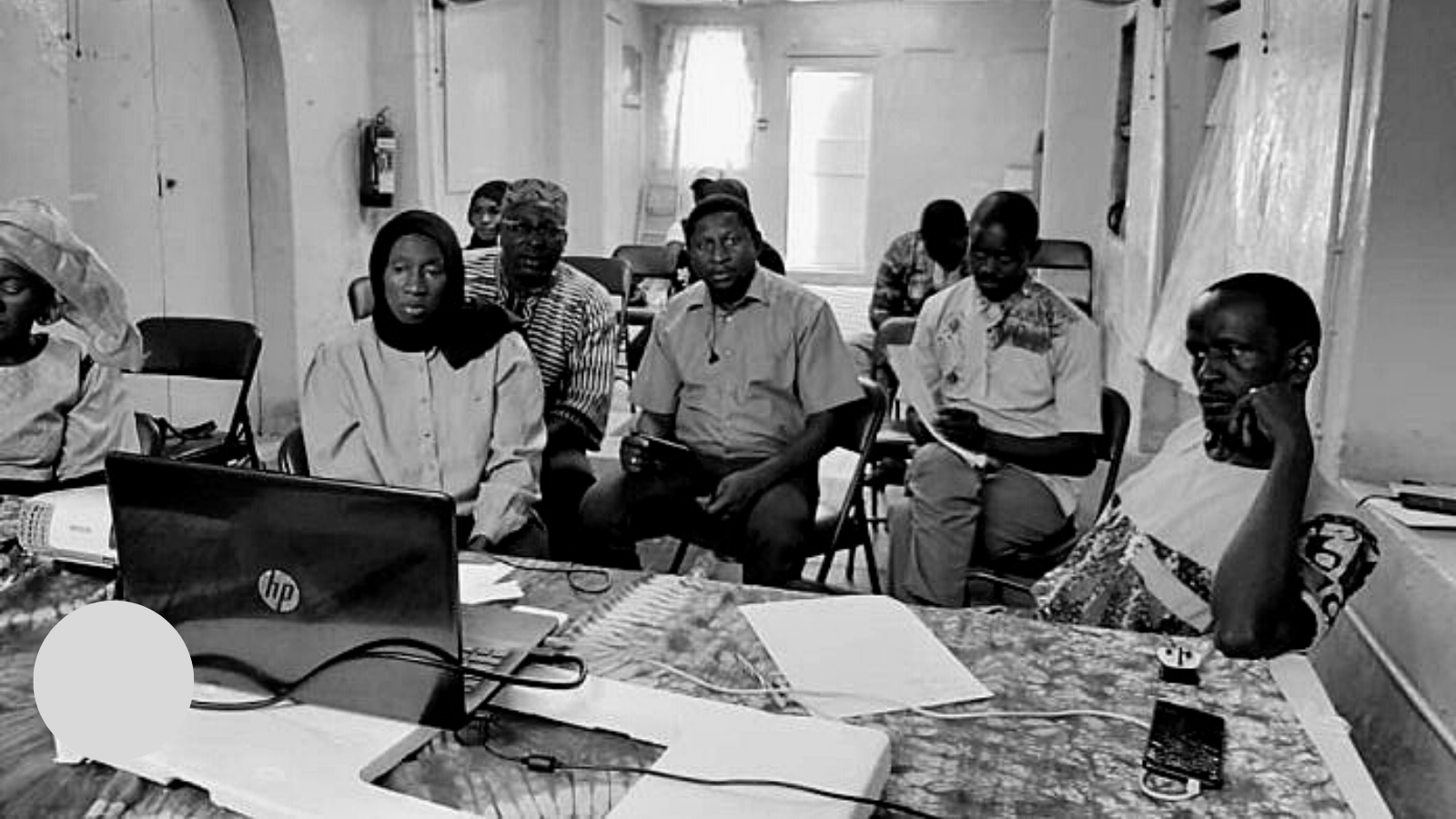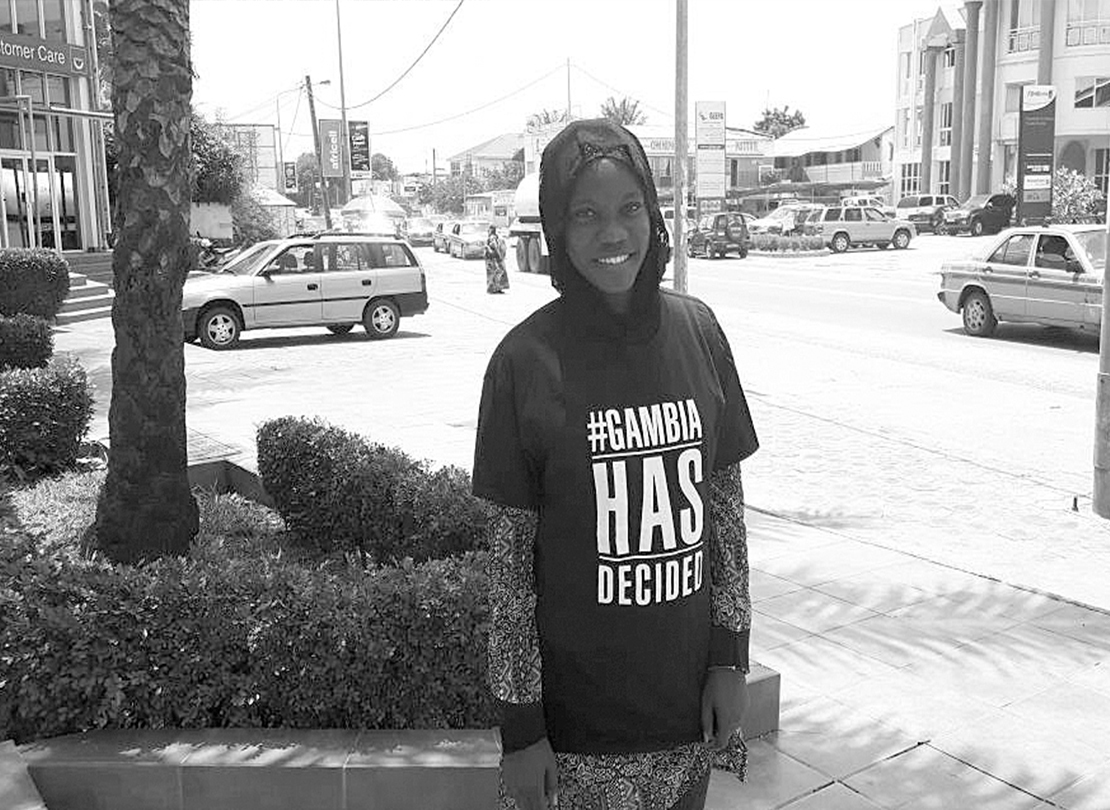Tag Archives: HerMaP Gambia
A new partnership for HERITAGE and SoFIA
The Heritage Management Organization (HERITΛGE) and the School of the Future International Academy (SoFIA) are joining forces to support education and heritage management professionals in The Gambia. With their expertise in adult training and competence development, the two organizations will organize a series of activities to enhance the skills of professionals in the fields of education and culture.
The first goal of this partnership is to provide tailor-made mentoring programs for school leaders to develop the essential skills they need to succeed in managing their educational institutions. Through the initiative, school leaders will also become familiar with the importance of promoting and preserving the cultural heritage of their local communities and the country as a whole. They will be encouraged to collaborate with cultural institutions and groups in their area to promote the significance of understanding and promoting culture.
The collaboration will also include heritage management professionals working with local education institutions to create an open, inter-generational dialogue between people who are interested in promoting the value of cultural heritage in their communities. Participants will receive support on how to effectively interpret and teach local History and Culture in the curricula of their schools and in cultural spaces in their area.
“Our network in The Gambia is very extensive, and it is important that it becomes useful for the benefit of the country. It is for this reason that we have partnered with SoFIA to ensure that the country’s secondary education sector benefits from their services, as that sector is crucial for the improvement of heritage management in the country. We are very proud to launch our collaboration with SoFIA with Latrikunda Upper Basic School (LKUBS), The Gambia,” said HERITΛGE Director Dr. Evangelos Kyriakidis.
Generally speaking, this collaboration is an effort to map the landscape for culture and education professionals in The Gambia trying to provide them with training and support aiming to improve the way their institutions operate. It is worth mentioning that The Gambia is just the first stop of this collaboration and that both organizations aspire to reach as many professionals as possible in more countries in Africa.
HERITAGE’s partnership with SoFIA elevates the visibility of the HerMaP Gambia intervention efforts, co-funded by the European Union.
HERITΛGE 2nd visit to The Gambia
58 heritage professionals trained, MOUs signed, meetings held with stakeholders
Heritage Management Organization (HERITΛGE) Director, Dr. Evanghelos Kyriakidis, and HERITΛGE instructor Dr. Eleni Stefanou visited The Gambia on 24th November – 4th December to hold training workshops and meetings with stakeholders for the HerMaP Gambia program aimed at strengthening the country’s heritage sector.
58 heritage professionals were trained during in-person workshops on Community Engagement and Oral History. Oral History is a topic of specific interest to The Gambia’s heritage sector as the country is notably rich in cultural heritage conveyed orally from generation to generation.
Dr. Kyriakidis held a number of meetings with stakeholders, including General Assembly member, Omar Jammeh, National Centre for Arts and Culture Director General, Hassoum Ceesay, representatives of the Gambia Tourism Board, as well as representatives of the Youth Chamber of Commerce.
“The Gambia’s rich heritage is an incredible resource; at HERITΛGE we are very proud to be contributing to the country’s development by training local heritage managers, giving them the necessary tools to engage with and empower local communities,” said Kyriakidis.
Acknowledging the value of partnerships, HERITΛGE’s Director also signed MoUs with the Wassu Stone Circles Tour Guides Association and the Juffureh Albreda Youths Society, aimed at deepening and building upon HerMaP initiatives in The Gambia.
Finally, HERITΛGE had the opportunity to visit sites of cultural importance such as Kunta Kinteh Island, the Wassu Stone Circles, and the Geniere Cultural Museum among others, and to briefly attend the first day of the annual Niumi Fort Bullen Festival celebrating traditional arts and culture.
About HerMaP Gambia: The program is co-funded by the European Union and it aims at developing the business skills of heritage and cultural managers to enable them to establish and better support heritage and cultural enterprises. Supporting The Gambia’s heritage sector will promote community solidarity and provide high-quality employment opportunities for local talent.
This workshop is part of the HerMaP Gambia program with funding partly matched by the UN Economic Commission for Africa. It is being realized in partnership with the NCAC.
HERITΛGE visit to The Gambia – Meeting with heritage sector beneficiaries and stakeholders & Executive Leadership Workshop
The Heritage Management Organization (HERITΛGE) completed an in-person visit to The Gambia for the HerMaP Gambia program on 17th – 24th August to build on and develop the program’s capacity mapping and building functions for the heritage sector.
The team, headed by Project Manager Mina Morou, held meetings with The Gambia’s Vice President, Badara Alieu Joof and key heritage beneficiaries and stakeholders as well as training sessions with local heritage managers.
“We are happy to be in The Gambia after the lifting of the pandemic restrictions to further implement the HerMap Gambia program which serves as a springboard to develop the capacity of the country’s heritage sector, empowering local communities to grow sustainably by building on their culture, history, and traditions,” said Morou.
Morou, along with expert educator and trainer of trainers (ToT) Iordanis Paschalidis, and ethnomusicologist Stella Paschalidou, delivered an executive leadership workshop on Capacity Development: Strategies and Best Practices, attended by 25 cultural managers from Barra, Wassu, Janjanbureh, Juffureh and Albreda, and Banjul and its greater area.
HERITΛGE is grateful to The Gambia’s National Centre for the Art and Culture (NCAC) and its General Director, Hassoum Ceesay, for introducing and hosting the workshop as well as supporting our mission throughout its visit.
About HerMaP Gambia: The program is aimed at developing the business skills of heritage and cultural managers to enable them to establish and better support heritage and cultural enterprises. Supporting The Gambia’s heritage sector will promote community solidarity and provide high-quality employment opportunities for local talent.
The worskshop was funded by the European Union with funding partly matched by the UN Economic Commission for Africa. The HerMaP Gambia in co-funded by the European Union.
HERITΛGE in the news
The Heritage Management Organisation’s people, programs and partners have all been in the news. You can find some of the articles below.
Heritage Director, Evangelos Kyriakidis, told Euronews’ Jonny Walfisz that Britain must seize the opportunity for cultural diplomacy and give up its fears regarding the restitution of the Parthenon Sculptures to Greece and the British Museum needs to see past the legal arguments it has been presenting on the issue…
Read more on Euronews.com
Staying on the same topic, Dr. Kyriakidis told Euronews a few weeks later that European museums must do more than just return artefacts….
Read more on Euronews.com
Irene Onyancha of the United Nations, Economic Commission for Africa (ECA) speaking on behalf of Nita Deerpalsing during the “Community Engagement Workshop with Community Leaders on the Promotion and Protection of Heritage Resources” which was held in Nairobi, Kenya, told participants that ECA is partnering with stakeholders including the Africa Union Commission and HERITAGE, to implement its heritage management programme which aims to empower local communities and experts…
Read more on ModernGhana.com
Press in The Gambia and beyond reported on Heritage’s “Engaging Communities in Cultural Heritage” and “Heritage Interpretation for Site Managers” workshops. Cultural heritage managers in Banjul, Barra, Janjanbureh and beyond took part in the workshops which address the needs of the country’s heritage organizations and local groups as they themselves set them out in a survey conducted by the Heritage Management Organisation. The workshops are part of the HerMaP Gambia project, co-funded by the EU ….
Read more on AllAfrica.com, ThePoint.gm and ModernGhana.com
Naftemporiki, one of Greece’s oldest and best-known financial papers/websites, features Hertigage’s work in Africa, highlighting that this is the first time that the UN Economic Commission for Africa (UNECA) has collaborated with an organization to develop a cultural heritage program in the continent…
Read more on Naftemporiki.gr
Greek media reported on the upcoming conference on “Emerging Trends and Technologies (EMTech) in Cultural Organizations: Management Innovation and Network Collaboration” that HERITAGE is organizing at the American Farm School in Thessaloniki to mark the conclusion of the international TEACH FOR FUTURE project. The project was co-funded by the European Union’s Erasmus+ programme and took place in Bulgaria, Greece and Romania…
Read more on MyPortal.gr
“Engaging Communities Cultural Heritage” in The Gambia
On World African Heritage Day, the Heritage Management Organization is happy to announce that 41 heritage and cultural managers in Banjul, Barra and Janjanbureh attended its 3-day “Engaging Communities in Cultural Heritage” workshops.
“This workshop addresses the needs of the country’s heritage organizations and local groups as they themselves set them out in a survey we conducted to establish the sector’s specific training needs. As a result, we are delighted to be offering this workshop and to be working with multiple and very diverse stakeholders including the NCAC, Banjul, Janjanbureh, Lower Niumi, and Basse local communities, as well as the festival committees of Barra and Janjanbureh, tour guide groups and local heritage-related business managers,” said Evangelos Kyriakidis, the Heritage Organization’s Director.
The workshops, which are held online, are part of the Heritage Management Organization’s “HerMaP Gambia” program, which aims to develop the business skills of heritage and cultural managers working for civil society organizations in The Gambia. The aim is to enable them to establish and better support heritage and cultural enterprises. It is hoped that supporting enterprise-building based on the Gambia’s cultural heritage will promote greater community solidarity and eventually provide opportunities that will help reduce the number of people being lost to The Gambia through brain drain.
“The HerMaP project is a unique opportunity for us to engage with the incredibly diverse heritage sector of the Gambia, a country extremely rich in traditions, oral history, poetry, song, and dance among others. It is extremely encouraging to see the engagement of the Gambian stakeholders who ultimately will have ownership of this program. It is here important to thank all stakeholders in this program, and the European Commission for making it possible,” Kyriakidis added.
During the workshop, which was held online, participants familiarized themselves with the context of community engagement through heritage, the importance of values in community initiatives, discussed methodologies based on ethnography and oral history, and engaged in practical exercises aimed at understanding the communities they work with and producing multimedia content with the guidance of the instructors.
“We need to redouble our efforts at proper management of our cultural heritage. This will enable our younger generation to benefit from it since it will also promote tourism’’, said Saloum Sheriff Janko program manager Artists in Alliance for Arts and Culture.
The project is co-funded by the European Union with some funding partly matched by the UN Economic Commission for Africa. It is being realized in partnership with the National Centre for Arts and Culture.
HerMaP Gambia: the project so far
“HerMaP Gambia” aims to strengthen CSOs as partners and stakeholders in promoting social development, inclusive and sustainable growth in the cultural and creative industries and develop the business skills of heritage and cultural managers in order to achieve greater community solidarity and reduce the number of people being “lost” through ‘irregular migration’.
In order to address the potential for The Gambia’s cultural heritage to support social and economic development to foster job creation and mitigate irregular migration, the Action is focusing on building the skills and capacities of local partners through a program of training for Gambian cultural heritage professionals and others delivered by international experts, supported by the training of these professionals to act as trainers so that this knowledge transfer can then be replicated and delivered across the country and to the local level.
This will lead to more engagement with the importance, and techniques of cultural heritage management, and this will be specifically applied to develop support for a sustainable cultural tourism industry. Activities delivered under the Action will not only encourage, but actively require the development of new partnerships to share responsibilities between community organizations, SMEs, CSOs, local authorities and municipalities in the promotion of inclusive and sustainable economic growth.
The whole project intends to support adaptive engagement with heritage which can generate various spill- over benefits not only on the architecture or revalorization of these sites but also at management, operational and, possibly, cultural production level (e.g. when organizing festivals). Whilst local specificities of Gambian heritage sites will be enhanced through training, the project will also explore adaptive engagement by encouraging participatory approaches within heritage – such as direct links to heritage handicrafts, music and sport – specifically Gambian wrestling, which is as much a cultural activity as it is a sport.
The Action will be delivered over 48 months (September 2020 – August 2024).
During the first year HERITΛGE in collaboration with local stakeholders and partners are devoted to undertake a Heritage Workforce Mapping exercise, and its results are expected to be gathered and evaluated by the end of summer 2021. This useful information will help the detailed planning and development of the training curriculum for The Gambia.
The project is co-funded by the European Union.

